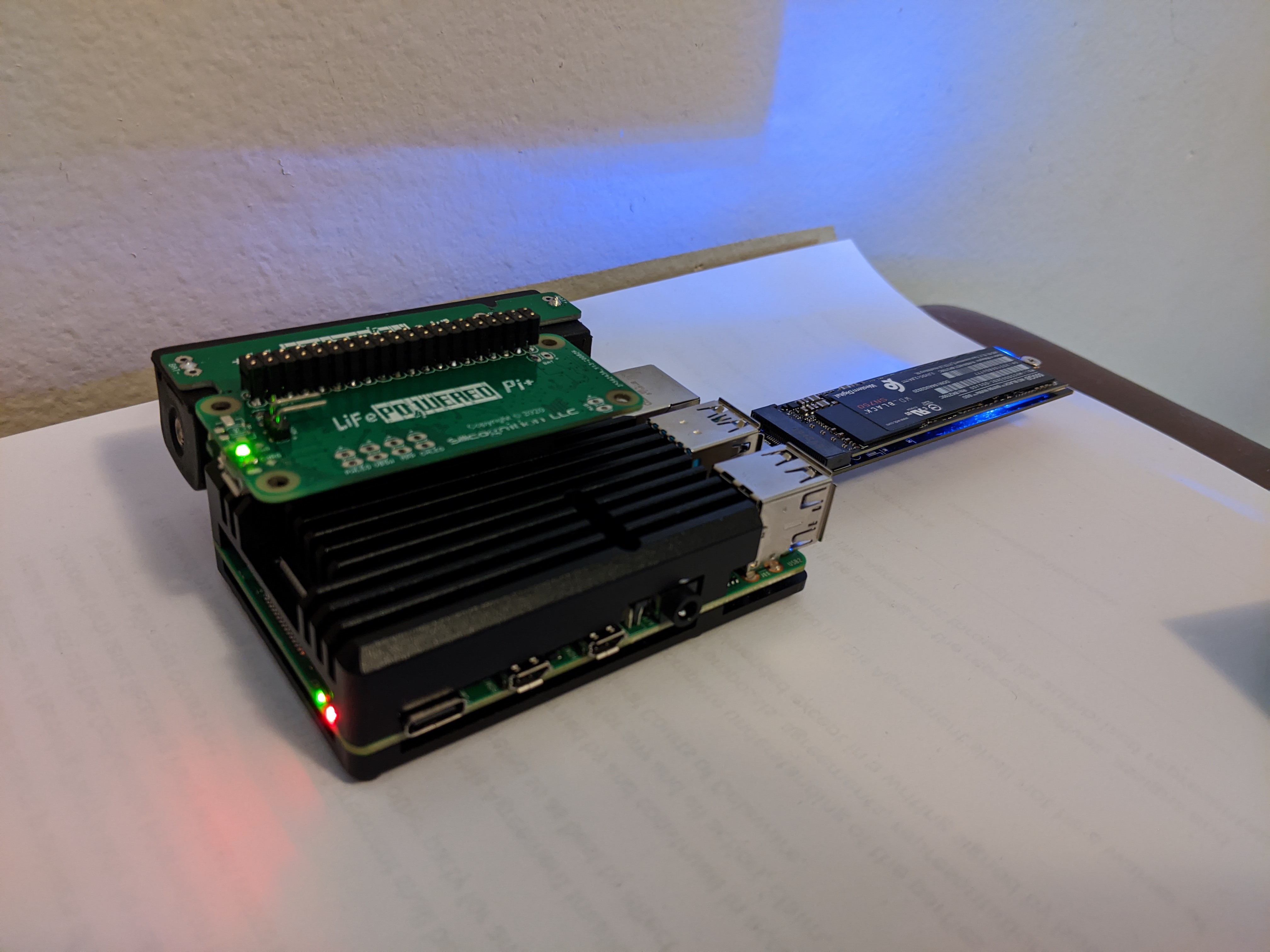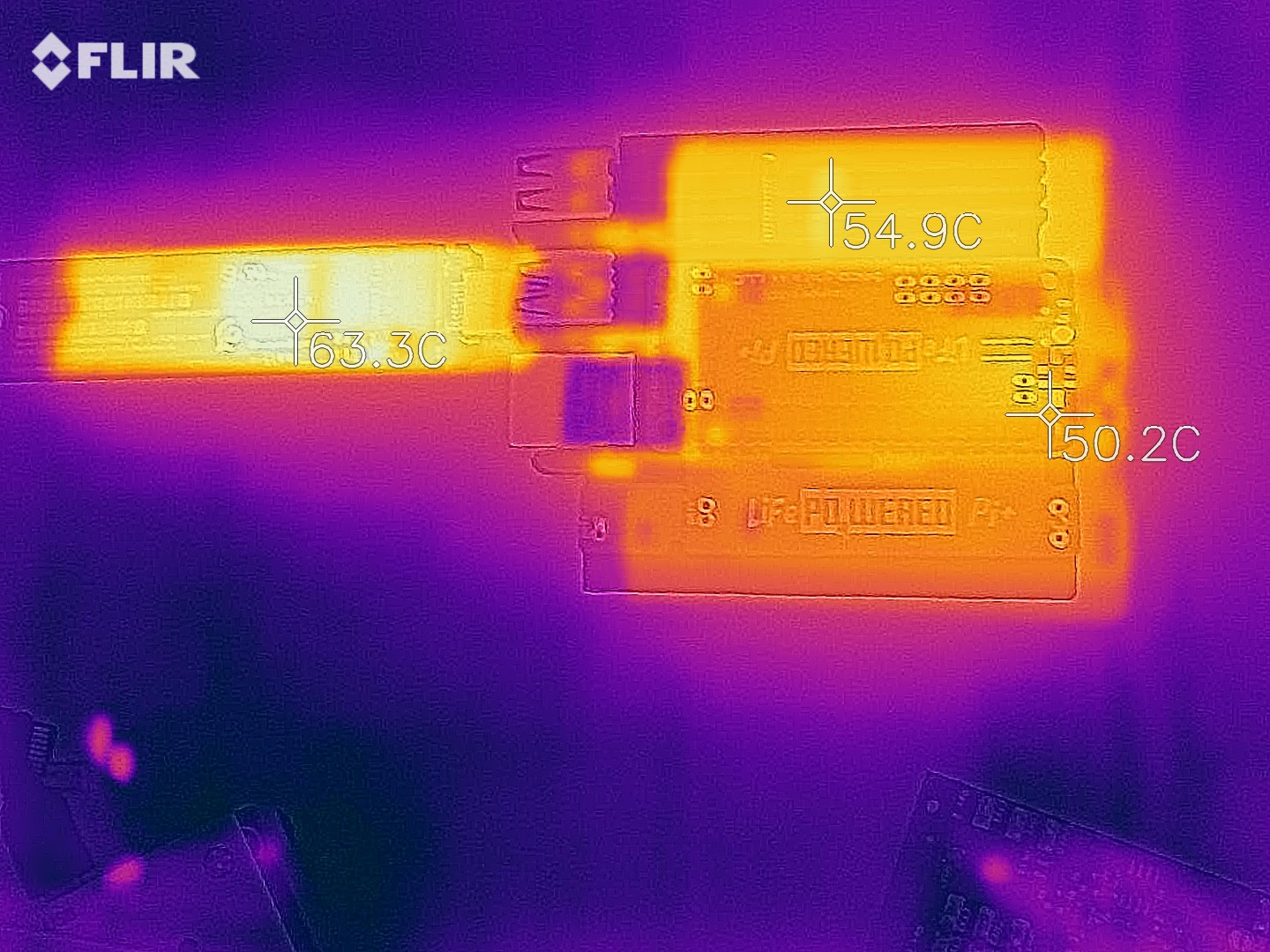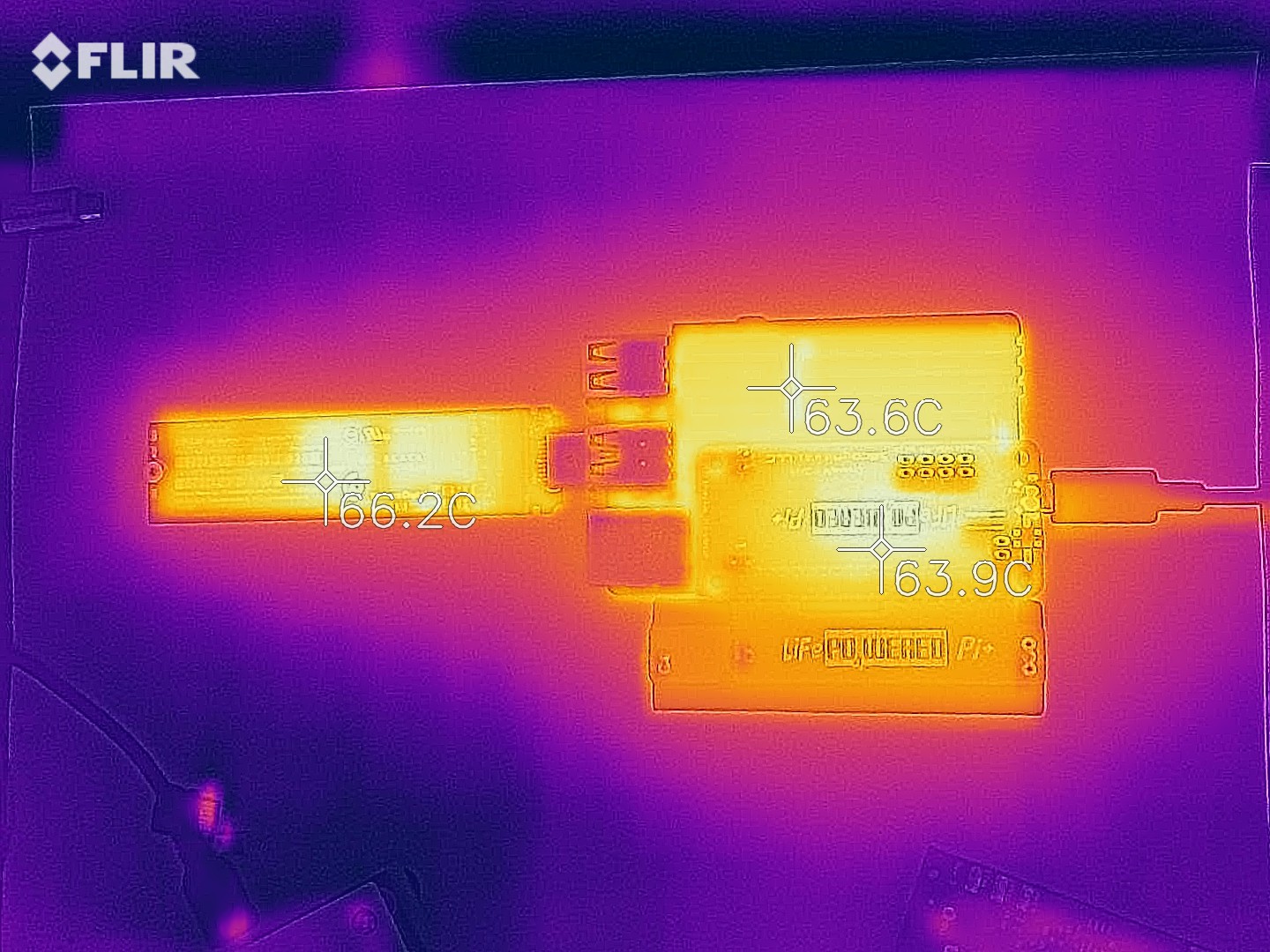To test a real world high load scenario, I set up a Pi 4 with large heat sink (to maintain maximum frequency) and configured it to run from a 500GB WD Black NVMe SSD using a USB to M.2 adapter. I also stressed the system with the following command:
stress -c 4 -i 2 -m 2 -d 2I used an extra stacking header to make the LiFePO4wered/Pi+ fit above the heat sink. Here's the setup: I wanted to make sure the system would run stable from both battery and when externally powered, and switch seamlessly between the two. I also wanted to take some thermal shots in both conditions.
I wanted to make sure the system would run stable from both battery and when externally powered, and switch seamlessly between the two. I also wanted to take some thermal shots in both conditions.
Here's the first thermal shot when running from battery:
 Sorry about the bad alignment between the thermal and optical in this image.
Sorry about the bad alignment between the thermal and optical in this image.It shows that the temperatures at reasonable levels. The SSD is the hottest, but keep in mind that that Pi benefits from a huge heat sink while the LiFePO4wered/Pi+ and SSD have to make do with whatever heat transfer to the air their parts and PCBs can manage. If the Pi didn't have the heat sink, its CPU would be the hottest. In fact, the command:
/opt/vc/bin/vcgencmd measure_temp
showed it at 73°C in this setup. The load current would fluctuate between 1.6 A and 1.8 A.
When the battery was getting low I plugged it in to external power and waited a while to let the temperature stabilize:

I'm not entirely sure why the Pi's temperature would go up, it might just be that I hadn't let it settle for long enough in the first picture. The SSD temperature is similar and the LiFePO4wered/Pi+'s temperature is higher because it now is also converting input power. Still, all these temperatures are completely reasonable for a system under high load.
I plugged and unplugged external power a whole bunch of times to ensure the UPS would do its job as expected and saw no issues. Then I let the battery run out and observed that a clean shutdown was performed. Everything working as expected!
 Patrick Van Oosterwijck
Patrick Van Oosterwijck
Discussions
Become a Hackaday.io Member
Create an account to leave a comment. Already have an account? Log In.